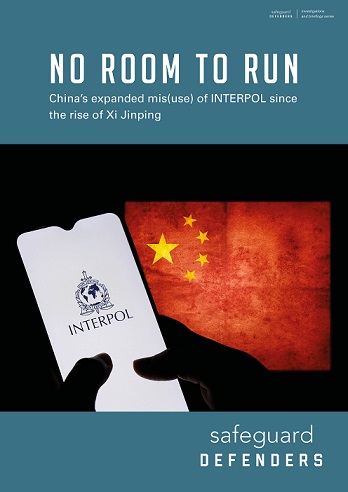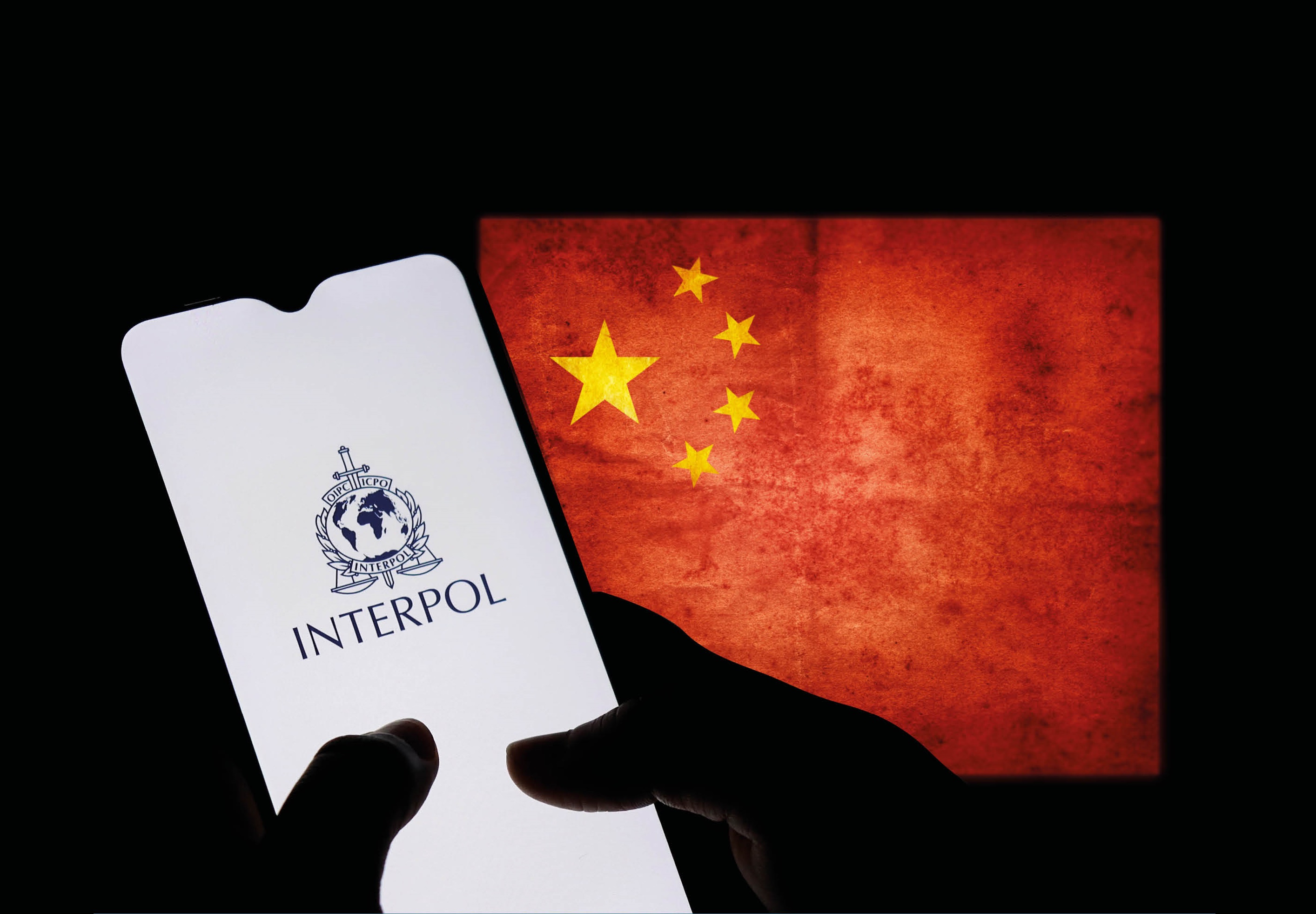China's use of INTERPOL exposed in new report
Today, 2021-11-15, Safeguard Defenders releases its latest investigation, and for the first time presents data on how China uses (and misuses) INTERPOL tools such as Red Notices, how its use of INTERPOL has changed dramatically since XI Jinping launched his "anti-corruption" campaign, as well as looks at INTERPOL's rapid expansion over the last two decades, which has seen the use of Red Notices increased ten-fold, and Diffusions five-fold.
At the same time, Safeguard Defenders, the Inter-Parliamentary Alliance on China (IPAC), and exiled activists from China, Hong Kong, Tibet, and Xinjiang launches appeals to governments to prevent the election of Hu Binchen to INTERPOL's 13-members Executive Committee, to be decided by its General Assembly on November 23-25. Hu Binchen is a police officer with the Ministry of Public Security (MPS), and works specifically for its International Cooperation Department, which is heavily involved in China's Fox Hunt and Sky Net operations, which uses regular tools such as INTERPOL and extraditions to return alleged fugitives, but is also involved in forcing their return via threats to family back in China, by sending agents abroad to operate illegally in foreign countries to intimidate people to return "voluntarily", and conducts kidnappings. For full information about the campaign, click here.
Download the investigation as PDF, "No Room To Run", or visit Safeguard Defenders Publications section.
Executive Summary
 Despite some recent reforms, INTERPOL’s famously untransparent Red Notices and Diffusions systems continue to draw harsh criticism from human rights defenders. Recent cases, such as the continued detention of Uyghur Idris Hasan in Morocco on a Red Notice requested by the People’s Republic of China (PRC) issued in 2017 and deemed “non-compliant” by INTERPOL only following his arrest, highlight the inherent dangers of international policing cooperation with non-Rule of Law countries, prone to abuse such instruments for persecution that run counter to INTERPOL’s Constitution.
Despite some recent reforms, INTERPOL’s famously untransparent Red Notices and Diffusions systems continue to draw harsh criticism from human rights defenders. Recent cases, such as the continued detention of Uyghur Idris Hasan in Morocco on a Red Notice requested by the People’s Republic of China (PRC) issued in 2017 and deemed “non-compliant” by INTERPOL only following his arrest, highlight the inherent dangers of international policing cooperation with non-Rule of Law countries, prone to abuse such instruments for persecution that run counter to INTERPOL’s Constitution.
In the ambit of a wider campaign on such issues – including bilateral extradition treaties and judicial cooperation agreements with the PRC - this brief investigation seeks to elucidate some of the most obvious PRC abuses of the INTERPOL system.
After a brief period of high profile and public use of Red Notices, China’s use is now shrouded in more secrecy – the PRC affirmed its new intended and announced policy to refrain from making its Red Notice requests public. Data on the PRC’s use of INTERPOL is scarce but all evidence points to a significant increase in the use of its tools since Xi Jinping assumed his role at the helm of the Chinese Communist Party in 2012. The use of INTERPOL plays a key role among other legal and extra-legal means to hunt “fugitives” in the wider ambit of his domestic “anti-corruption” campaign and international operations Sky Net and Fox Hunt.
“China has kept up its great efforts in fighting corruption in recent years. Sky Net, built in 2015 to net corrupt fugitives living overseas, has seen 4,997 fugitives returned to China from over 120 countries and regions. Among them, 54 were on the list of China's hundred most-wanted suspects, all of whom had INTERPOL Red Notices for them. […] There's no need to run, and there's no room to run. […] Xi has guaranteed to Chinese nationals that no matter where the corrupt officials flee, they must be brought to justice” (CGTN, 15 January 2019).
According to INTERPOL regulations and an overview of recent cases, Safeguard Defenders’ investigation highlights some of the main issues with, and the misuse of, the INTERPOL system by the PRC: prolonged detention and arbitrary arrest on the basis of Red Notices of activists and persecuted ethnic or religious minorities abroad; harassment and intimidation of political dissidents; improper use of INTERPOL notices to induce “fugitives” to return “voluntarily”; and the wider intimidation and harassment of communities within China.
Furthermore, the expanding nature of political crimes in Chinese criminal law is rapidly driving the basis for arrest warrants. The increasing extra-territorial application of National Security Provisions both in Hong Kong and on the Mainland is an added cause for concern and warrants immediate attention by INTERPOL member states. Most recently, in November 2021, an official stated that being in favour of Taiwan independence constitutes a crime, and that its culprits, including those living outside the Mainland, will be criminally liable for life in the PRC.
Read the full investigation as PDF, "No Room To Run"
